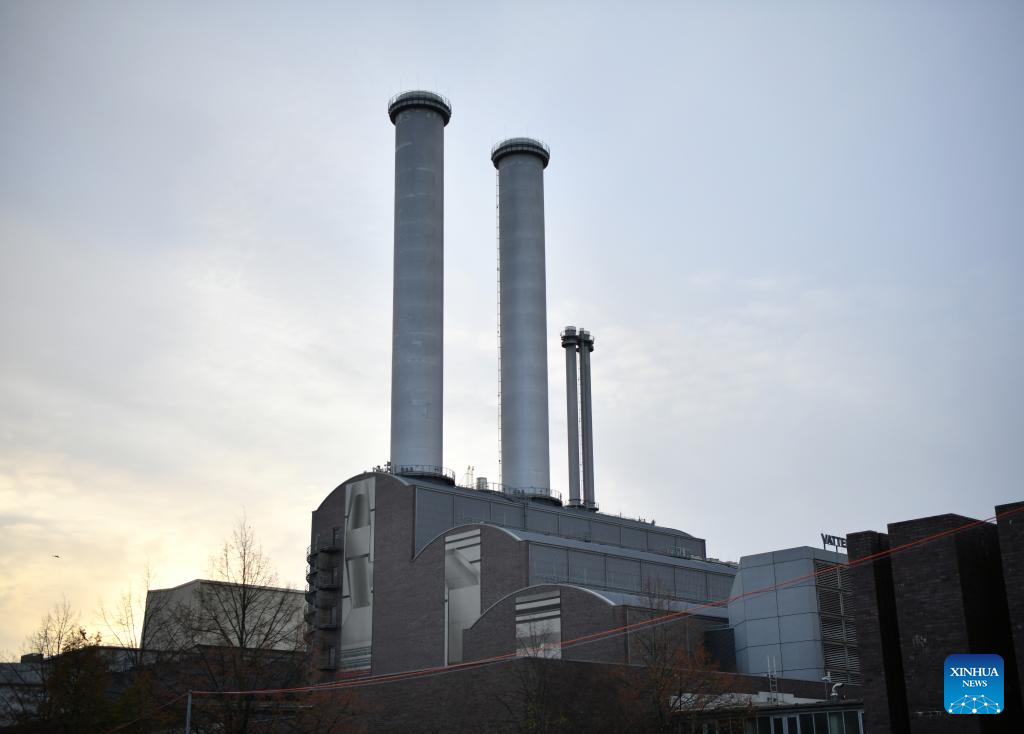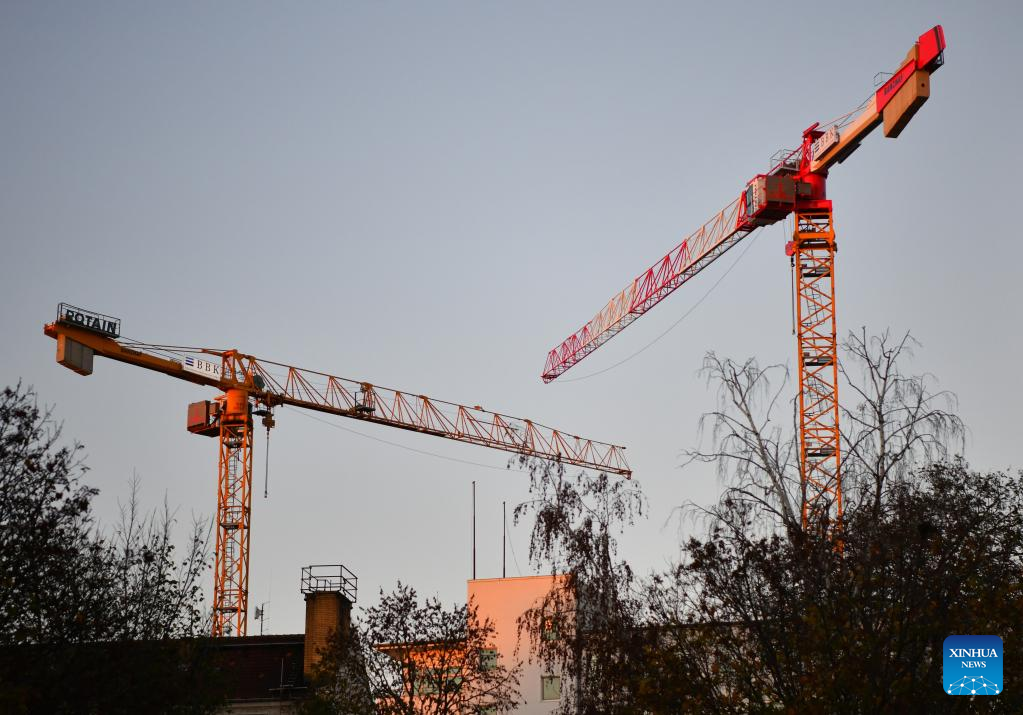German industrial production rises despite energy crisis, supply problems

Photo taken on Nov. 7, 2022 shows a plant in Berlin, Germany. Despite soaring energy prices and ongoing supply chain issues, industrial production in Germany in September increased by 0.6 percent month-on-month, the Federal Statistical Office (Destatis) said on Monday. (Xinhua/Ren Pengfei)
BERLIN, Nov. 7 (Xinhua) -- Despite soaring energy prices and ongoing supply chain issues, industrial production in Germany in September increased by 0.6 percent month-on-month, the Federal Statistical Office (Destatis) said on Monday.
This followed a decline of 1.2 percent in August, Destatis said.
However, production continued to be affected by an "extreme shortage" of intermediate products due to the Russia-Ukraine conflict and the COVID-19 crisis, and supply chain disruptions caused problems in completing orders.
Although material shortages in German manufacturing eased slightly in October, two out of three companies in Europe's largest economy still reported supply bottlenecks, according to the latest survey by the ifo Institute for Economic Research.
The slight increase in German industrial production in September cannot be seen as a glimmer of hope, a spokesperson for the country's chemical industry association VCI told Xinhua on Monday, pointing to a 4 percent drop in new orders.
Contrary to the overall trend in German industry, production in energy-intensive industries such as the chemical industry in September fell by 0.9 percent month-on-month, and was down 9.7 percent year-on-year, according to Destatis.

Photo taken on Nov. 6, 2022 shows tower cranes at a construction site in Berlin, Germany. Despite soaring energy prices and ongoing supply chain issues, industrial production in Germany in September increased by 0.6 percent month-on-month, the Federal Statistical Office (Destatis) said on Monday. (Xinhua/Ren Pengfei)
Inflation in Germany continued to rise, reaching 10.4 percent in October. According to preliminary figures by Destatis, energy prices soared 43 percent year-on-year, and continued to have a "substantial impact on the inflation rate."
"The chemical industry is particularly affected by high energy and raw material costs," the VCI spokesperson said. "An increasing number of plants are becoming unprofitable at current energy prices."
To cushion the effect of the energy crisis on consumers and companies, the German government has presented relief packages worth 95 billion euros (94.8 billion U.S. dollars). In addition, a "protective umbrella" of up to 200 billion euros has just been approved to cap electricity and gas prices.
Nevertheless, the outlook for the coming months "remains gloomy," Germany's Ministry for Economic Affairs and Climate Action (BMWK) said on Monday, adding: "The mood among companies is still clearly subdued and demand is declining noticeably."
Next year, Germany is expected by many analysts to slide into recession. In line with leading economic institutes, the government has predicted an economic contraction of 0.4 percent in 2023. (1 euro = 1 U.S. dollar)
Photos
Related Stories
Copyright © 2022 People's Daily Online. All Rights Reserved.









